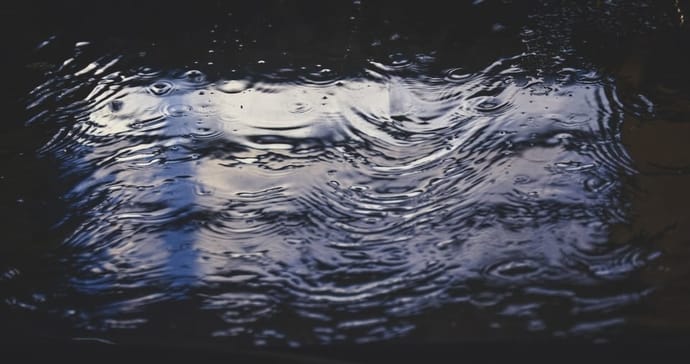
From a broken water heater to a malfunctioning sump pump to a severe storm, there are several reasons homeowners could be faced with a flooded basement. But no matter the cause, the results are similar: extra work and unexpected costs.
Many people have invested considerably in their basement by turning it into a game room, an informal living room, or an extra bedroom. For them, a flooded basement—and the ensuing water damage—is even more devastating. Whether you use your basement as additional living space or merely to store Christmas decorations, you must take specific steps immediately once you discover it’s flooded.
Did something inside the house cause the flooding?
Certain appliances within your home may malfunction and leak unwanted water into your basement. If the water is coming from your water heater, for instance, turn off the water valve on the heater or the main valve, which will be located on the street side of your house.
Did your sump pump stop working?
Your basement should not have flooded if your sump pump is working correctly. If you find that it’s not functioning as it should, unplug it for 15 seconds. When you plug it back in, it should start cycling immediately. If not, there might be a defective float switch, or you may need to install a new sump pump.
Is the water entering through the floor drain?
If water is getting into the basement through a floor drain, it could either be that the city main is backing up or there is an obstruction in the sewer lines. These blockages can cause sewer backups in your basement, which can be both costly and dangerous. Call a plumber right away and check with the city.
Will homeowners insurance cover a flooded basement?
While there are a host of reasons for a flooded basement, not all of them will be covered under your homeowners insurance policy. If you have standard home insurance coverage, however, you should be protected from any of the following four categories.
Flooded Basement Caused by A Broken Appliance
If the washing machine, refrigerator, or A/C unit in the basement breaks down and creates a water backup, the damage is typically covered under a homeowners insurance policy. Remember that the cost of the flooding damage is included, but not the cost to repair or replace the appliance.
Water Damage from a Leaking Water Heater
Similar to the coverage for leaking appliances, the damage from a leaking water heater is covered with the same stipulation: the water heater must be leaking from a malfunction and not as a result of neglect or poor maintenance.
Frozen Pipes Bursting
If your pipes suddenly burst from freezing water, your homeowners insurance policy will cover any water damage. The same holds true for pipes from an air-conditioning unit, sprinklers, and appliances. The primary condition here is that you must be living in the home when it was flooded.
Overflowing Tub, Sink, or Pool
If a bathtub, sink, pool, or any other water container caused your flooded basement, you would have coverage under your homeowners insurance.
When won’t homeowners insurance cover a flooded basement?
Just as there are situations in which homeowners insurance will cover basement water damage, there are other times that it will not. The following are examples of circumstances that are not covered by a standard homeowners insurance policy.
Rising Water from a Storm, Surge, or Heavy Rains
Any flooding caused outside the home will not be covered by homeowners insurance. For rising water, only a separate flood insurance policy will cover your flooded basement. Flood insurance covers specific items, such as personal belongings and appliances.
Water Seeping Through the Ground
After some heavy rain, the ground can become saturated with water, and that water can seep from underground into your basement. This water damage is generally not covered.
Sewer Backups
If an external sewer system backs up into your basement, your insurance will not cover the resulting damage. However, coverage can trigger up to the endorsed limit if you have this endorsed on your policy.
Before your basement is damaged by water backup, talk to an experienced insurance company. Make sure your homeowners insurance will protect you adequately from water damage and discuss the need for flood insurance.
Protect your property from the unexpected with a comprehensive homeowners insurance policy. For more information about your insurance needs, including auto, homeowners, and personal coverages, subscribe to our blog!
Not FDIC Insured | No Bank Guarantee | May Lose Value | Not a Deposit | Not Insured by any Federal Government Agency



